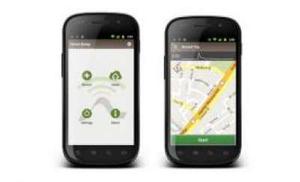Infrastructure protectionYou want to report a pothole? There’s an app for that
The city of Boston offers residents a new app – Street Bump – which will automatically report potholes they encounter; all the driver has to do is install the app and place the smartphone on the dashboard or in the cup holder; the app uses the phone’s motion detector and GPS locator to report potholes

App turns your smartphone into a pothole detector and reporter // Source: an3m1.com
Potholes are more than a nuisance. They often cause costly damage to cars and slow traffic,
Now, the city of Boston has released an app – Street Bump – which automatically reports potholes to the city department which is charge of fixing them.
The Daily Mail reports that the the procedure is rather simple. Drivers interested in participating in the reporting program must download and install the app on their smartpones first. Once it is installed, all they have to do is turn the application on before they get on the road, and place their smart phone either on the dashboard or in a cup holder.
The app, using the phone’s accelerometer — a motion-detector – to sense when a bump is hit, then takes care of the rest. GPS records the location of the pothole and the phone transmits it to a remote servers hosted by Amazon Inc.’s Web services division.
The avoid false positives, the system filters out things like manhole covers and speed bump by using a series of algorithms — including one that can tell whether the initial motion is up over a speed bump, as opposed to down into a pothole.
The server does not immediately consider any coming message as a pothole: at least three people have to hit – and report — a bump in the same spot before the system recognizes it as a pothole.
Boston has 806 miles of roadways, and, on average, the city’s road crews deal with 19,000 potholes a year.
Street Bump’s development cost — $45,000 – was covered by the Boston Mayor’s Office of New Urban Mechanics and insurer Liberty Mutual Group. The idea for the app was the city’s, and the prototype was developed by Worcester Polytechnic Institute professor Fabio Carrera, with help from a group he is working with at the Santa Fe Complex, a community organization in New Mexico.
